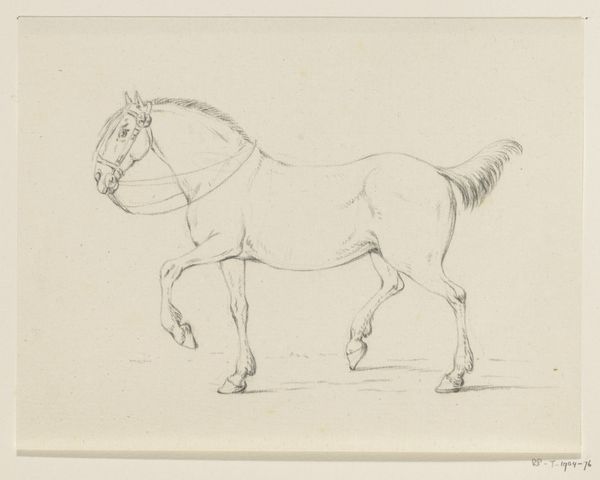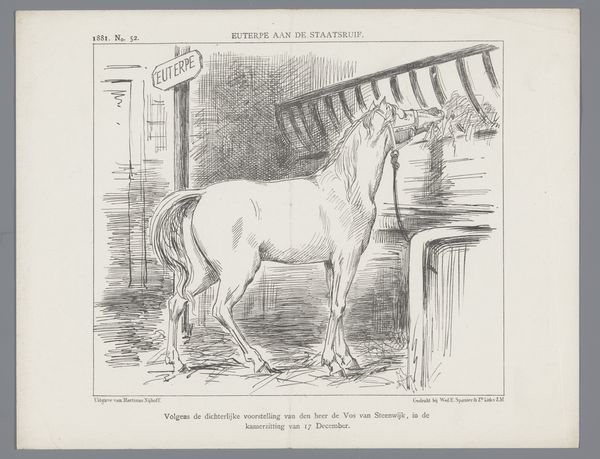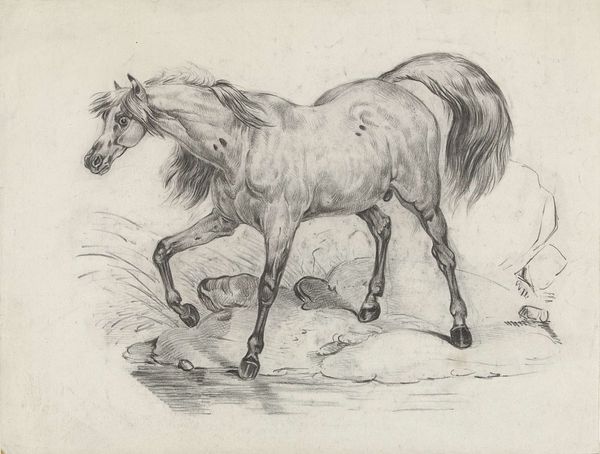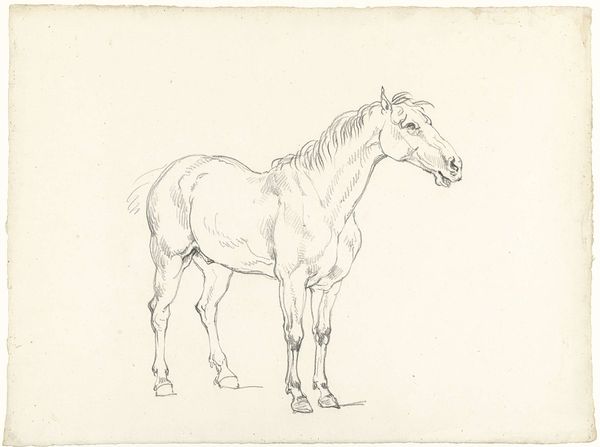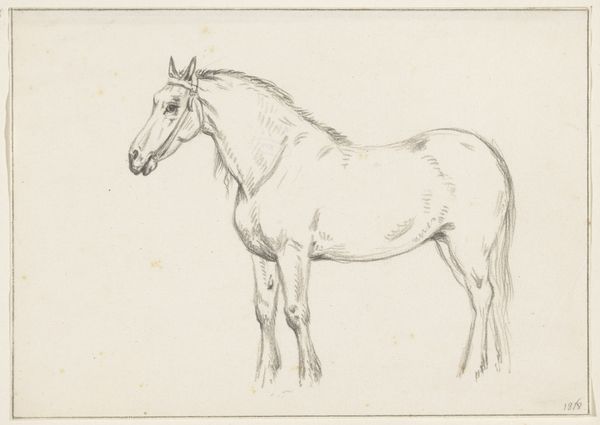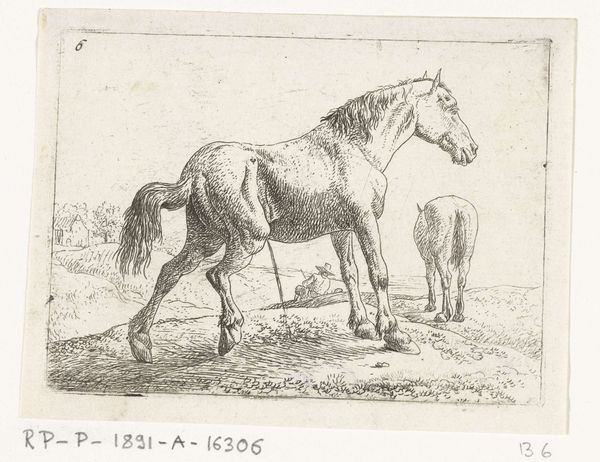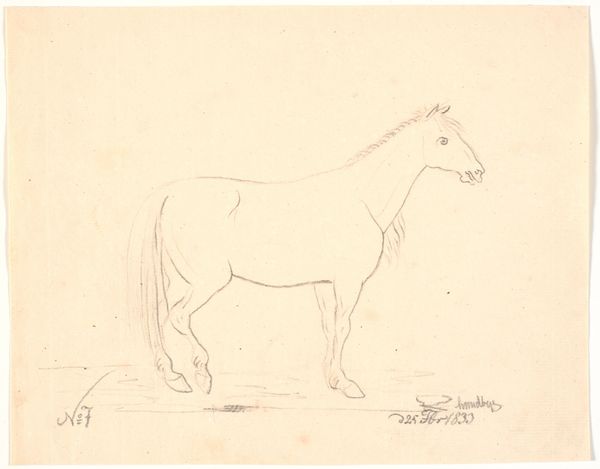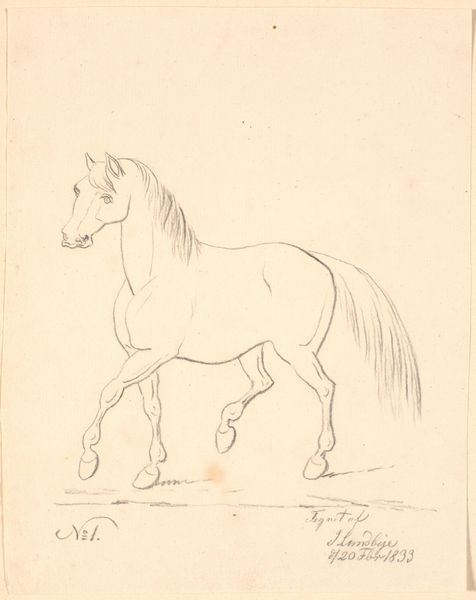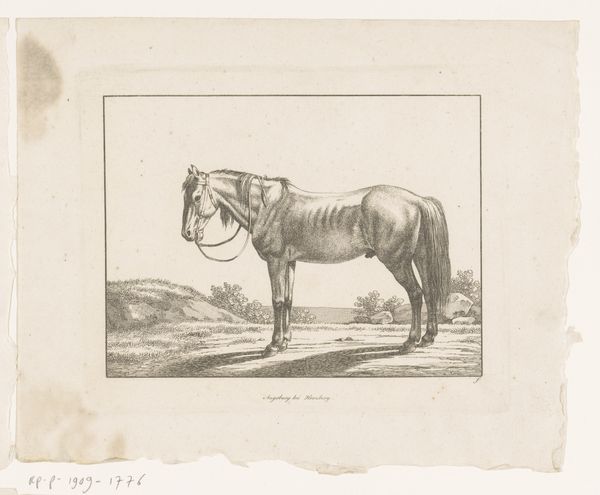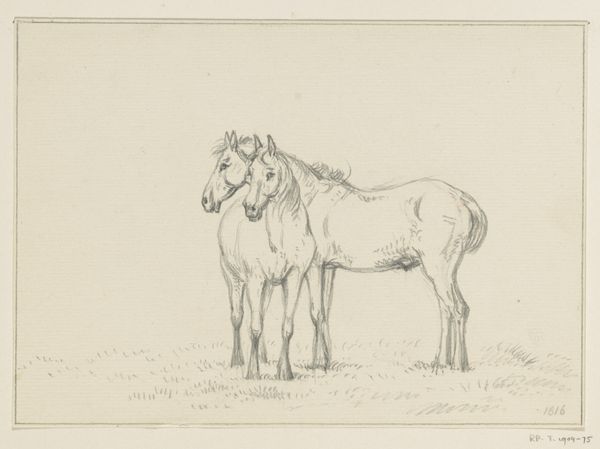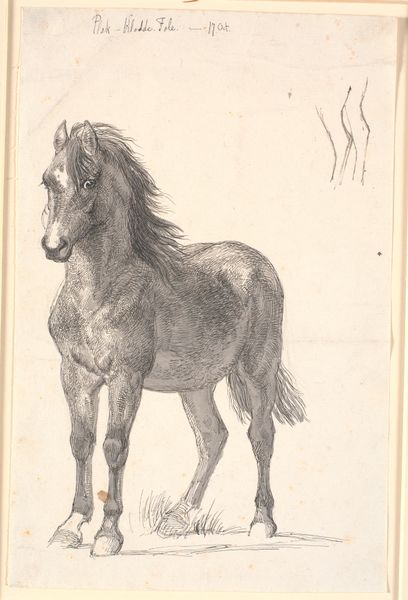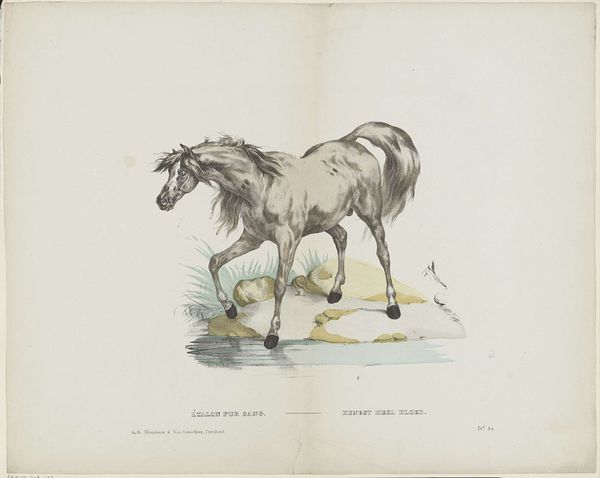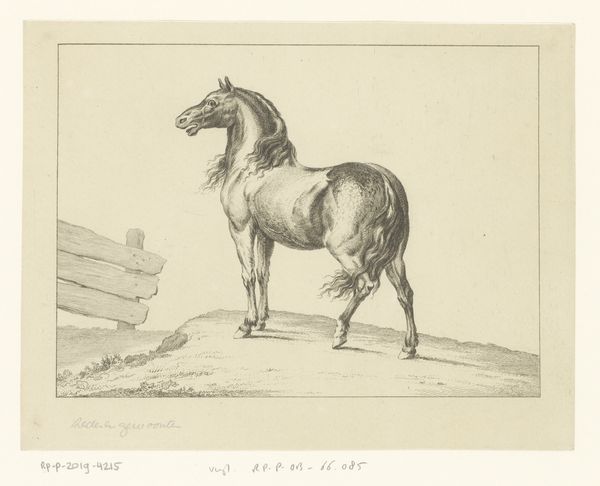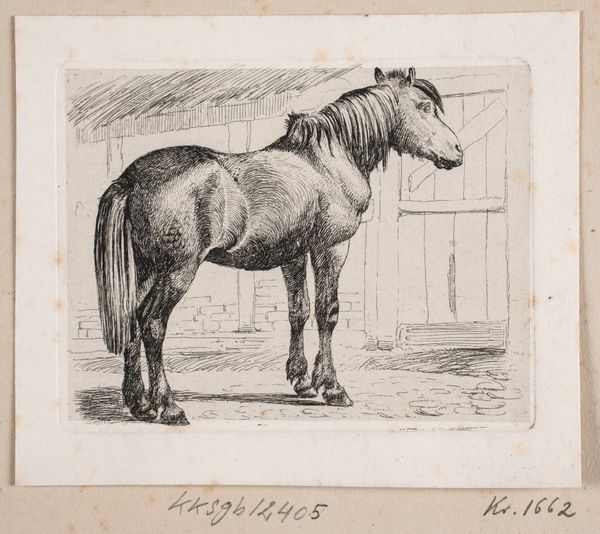
Anatomie van paard met mogelijke gebreken in lichaamsbouw 1739 - 1812
0:00
0:00
drawing, pen
#
drawing
#
animal
#
figuration
#
horse
#
pen
#
academic-art
Dimensions: height 200 mm, width 232 mm
Copyright: Rijks Museum: Open Domain
This print, by Johannes le Francq van Berkhey, is a study of equine anatomy, highlighting potential flaws in conformation. Made in the Netherlands, likely in the late 18th century, it reflects the Enlightenment's fascination with scientific classification and the practical application of knowledge. But it also speaks to the central role of horses in Dutch society, not just for agriculture and transport, but also for military power and elite display. The diagram meticulously labels various parts of the horse, revealing an interest in identifying weaknesses that might affect its performance or value. This wasn’t just academic curiosity; it was about managing an animal that was both a valuable asset and a symbol of social status. To fully understand this image, we might delve into veterinary manuals of the period, as well as agricultural treatises and military histories. These sources would reveal the cultural significance of the horse and the practical knowledge required to breed, train, and care for these animals.
Comments
No comments
Be the first to comment and join the conversation on the ultimate creative platform.
